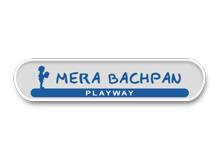 Frequently Asked
Questions
Frequently Asked
Questions
Career counseling is a professional service that helps individuals understand their strengths, interests, skills, and values in order to make informed decisions about their career paths. It involves guidance on career choices, job search strategies, resume building, and skill development.
Career counseling helps individuals clarify their career goals, explore various career options, overcome challenges, and make better decisions about their professional life. It can also assist with transitioning between jobs or industries.
Anyone who feels uncertain about their career direction, faces challenges in job search, or wants to improve their professional life can benefit from career counseling. It’s also valuable for individuals making a career transition, considering higher education, or exploring new fields.
Services often include:
- Career assessment and aptitude testing
- Career exploration and guidance
- Job search strategies
- Resume and cover letter writing
- Interview coaching
- Networking tips
- Professional development advice
- Addressing career transitions
In career counseling, the counselor will usually start by conducting assessments to understand your strengths, interests, and values. Based on these insights, they will discuss potential career options, job opportunities, and strategies for achieving your goals. The counselor may also provide resources and tools for job hunting and career growth.
Career assessments can include personality tests (e.g., Myers-Briggs Type Indicator), interest inventories (e.g., Strong Interest Inventory), and skills assessments. These tools help individuals understand their preferences and potential career paths.
No, career counseling is useful for people at all stages of their professional lives. Whether you’re entering the job market, looking to advance in your current field, or transitioning to a new career, career counseling can provide valuable support.
The duration of career counseling depends on your needs and goals. It could range from a single session to several meetings over a few weeks or months, depending on the complexity of your situation.
Yes, career counseling can help with job search strategies, such as how to effectively use job boards, networking, social media platforms like LinkedIn, and how to tailor your resume and cover letter to specific positions.
The cost of career counseling varies based on the counselor's experience, location, and the services provided. Some career counselors charge by the hour, while others may offer package deals for a series of sessions. It's important to inquire about pricing beforehand.
Yes, many career counselors offer online sessions via video calls, making it convenient for clients to access counseling from anywhere. Online platforms also provide virtual tools for career assessment and resources.
Absolutely! Career counseling is designed to help individuals who are uncertain about their career direction. By evaluating your skills, interests, and values, the counselor can guide you toward potential career paths that may be a good fit for you.
During a typical session, the counselor will ask about your background, interests, and career goals. They may conduct assessments, provide insights into different career options, and work with you to create an action plan. The session will focus on your specific needs and challenges.
To find a reputable career counselor, consider checking their credentials, experience, and client reviews. Many counselors are licensed professionals with backgrounds in psychology, human resources, or career development. You can also ask for recommendations from peers, colleagues, or professional networks.
Before your session, it’s helpful to think about your career goals, interests, values, and any challenges you’re facing. Bring along your resume, any career assessments you’ve completed, and questions or concerns you’d like to address during the session.







